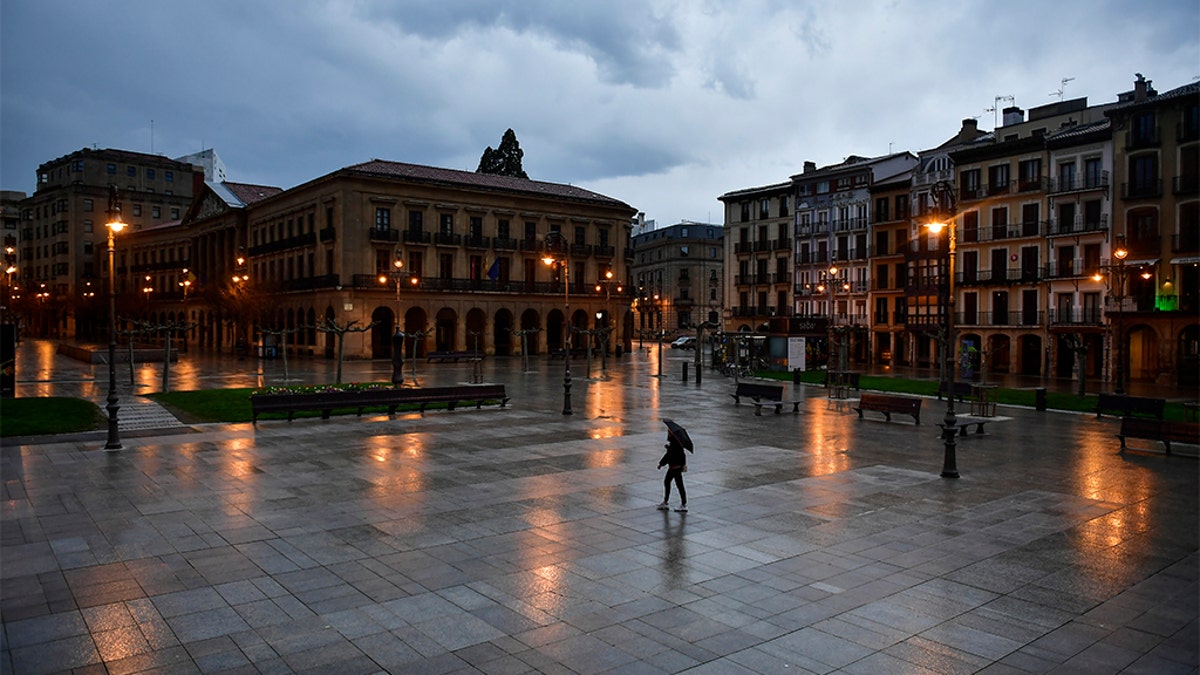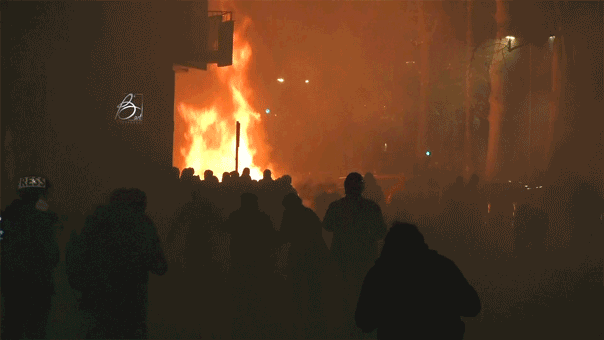What criteria will determine when the coronavirus crisis is over?
Dr. Marc Siegel answers questions from 'Fox & Friends' viewers.
The death toll in Spain from COVID-19 nearly doubled within the past 24 hours as the nation’s roughly 46 million people remain under a stringent lockdown meant to curb transmission of the highly infectious coronavirus.
Spanish health emergency center director, Fernando Simón, announced Tuesday the country had recorded at least 491 deaths from the coronavirus -- up from the 288 deaths reported by the ministry early Monday.
SPAIN BECOMES 4TH MOST CORONAVIRUS-INFECTED NATION, SEIZES ALL PRIVATE HEALTH CARE

View of an empty gallery at El Prado Museum in Madrid, Spain, Thursday, March 12, 2020. The spread of the new coronavirus continues disrupting normal life in parts of Spain, and it's also affecting sports, cultural and all sorts of leisure events after the government imposed a ban on gatherings of more than 1,000 people and to cut to a third the maximum audience of all venues holding indoor sports or cultural events. (AP Photo/Bernat Armangue)
At least 11,178 people have confirmed cases of the novel virus, Simón added, according to the Associated Press, after more than an additional 2,000 cases were recorded since Monday.
Police in Spain began enforcing land border checks Tuesday after the country, already under strict lock-down measures, banned people from entering or exiting the country in an attempt to contain the spread of the new coronavirus.
At the La Jonquera border, a key crossing point for trucks from and to France in northeastern Spain, masked agents of Spain’s national and Catalan regional police stopped cars and trucks, checked documents and redirected some of the vehicles back to France. Spanish citizens and residents are allowed to return home, and goods are allowed in and out.
On Monday, Spain became the fourth most coronavirus-infected nation in the world after surpassing South Korea and edging closer to Iran.
In response to the latest figures, the Spanish government seized control of all private hospitals and began requisitioning materials such as face masks and COVID-19 tests.
Spain had already declared a state of emergency Saturday and implemented a nationwide lockdown, ordering people to stay indoors unless they needed to leave to buy food or medicine, go to the hospital or report to work. Spanish transport minister, José Luis Ábalos, said it was likely the measures would be extended past the initial 15-day period.

A person walks through an empty Plaza del Castillo square in the old city, in Pamplona, northern Spain, Sunday, March 15, 2020. Spain's prime minister announced a two-week state of emergency from Saturday in a bid to contain the new coronavirus outbreak. (AP Photo/Alvaro Barrientos)
Last week, the World Health Organization said the epicenter of the pandemic is now Europe, after the coronavirus, which originated in Wuhan, China, spread globally over the past three months, now most severely impacting Italy.
The European Union is expected to vote Tuesday on shutting down its border to all non-essential travel. During a Monday video conference between G7 leaders, European Commission President Ursula von der Leyen proposed the travel ban for an initial 30-day period.
Border closures had already been causing problems across Europe.
In Lithuania, the cargo truck line on the border to enter Poland stretched 37 miles long after Poland closed its border to foreigners due to the new coronavirus.
On the Polish-German border, hundreds of vehicles have been stranded because they are not allowed to transit through Poland to go back home but don’t want to return to Germany.
German police helped stranded citizens from Baltic states get back home by ferry after Poland closed its border.
CLICK HERE TO GET THE FOX NEWS APP
Police in the northeastern city of Stralsund on the Baltic coast said they escorted 30 cars Tuesday with citizens from Lithuania and Estonia via a bridge to the German island of Ruegen’s ferry port, the German news agency dpa reported. The cars needed an escort because access to the island has been mostly limited to residents. From Mukran, the stranded Baltic citizens were hoping to catch a ferry to Lithuania.
A Lithuanian military plane also flew 31 people stranded in Germany back to Lithuania.
The Associated Press contributed to this report.









































